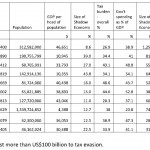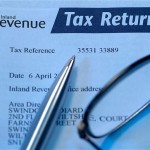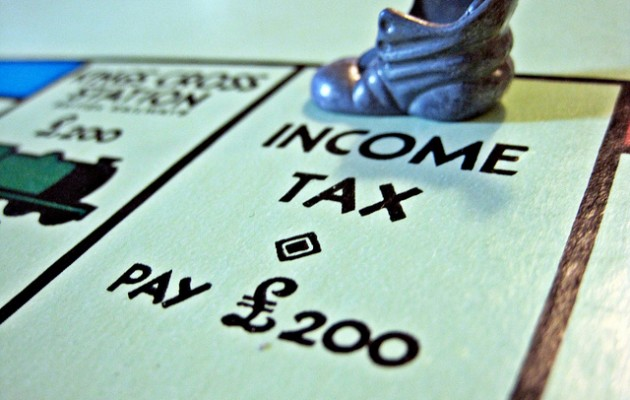Worth saying at the outset that avoidance is the minimisation of tax dues through legal methods, where evasion is the deliberate and illegal non-payment of tax by fraudulent means. From HMRC’s perspective, there is precious little they can do about avoidance unless the legislators make better laws and cut down the opportunities to do so, though every right-minded citizen would like them to come down harder on major league evaders and avoiders.
Nobody likes paying tax, and we certainly moan with some justification about the levels set, about the labyrinthine complexity of the tax system and the new taxes brought in by successive governments as a blight on our lives when we can least afford it. But while the cost is unfair and unreasonable, it is the corollary to our rights and the benefits we receive for citizenship.
In short, it is our civic responsibility to pay the taxes owed, as much from a sense of moral duty as legal requirement. And if we don’t like the taxes or how they are spent then to vote in a government that does what we want – impossible though that is in practice, since within a tolerance range no government significantly changes the tax system, other than to make it more complex and to find devious new ways to extract money from us.
The key point is that almost of us benefit from excellent public services, be healthcare, education, street lighting, highway maintenance, police, benefits, pensions and much more – many things we would miss but apparently resent paying for. There are always examples of profligate and wasteful expenditure (I’d quote the Trident replacement at varying costs between £30 and 100 billion, depending on who you believe) but the principle of the welfare state and cradle-to-grave support and nurturing stands intact as a great achievement of British culture and politics.
Yes, we do have a responsibility to look after ourselves too, but not at the expense of others by denying our duty to pay taxes. Those who say they don’t ask for nor need the services provided are being disingenuous or are ex-pats who are quite happy to see UK residents suffer so long as they can sit in the sunshine somewhere. Should we not all think of the bigger picture and the needs and wants of our society rather than be selfish? If you opt out and choose to pay for education and healthcare privately, you should not want to punish those who have no such option. Who knows, any of us could need those services tomorrow depending on accidents of fate.
Most of us consider the fairest form of tax to be progressive rather than regressive – that the burden fall upon those most able to pay, though opponents take a different view. The richer end of the community resent having to pay tax of any sort, but if they have to be endured would prefer taxes if any to be on consumption rather than income or wealth, which they would consider to be theirs by virtue of having earned it, to use as they desire.
Whether income or wealth are always earned is a moot point, but it would be a very poor form of justice if the poorest bore the greatest burden for tax, though in reality that’s what happens because wealthier people can afford accountants to set up a variety of tax avoidance schemes to take advantage of loopholes in the legislation, the most common including off-shore trusts. Of course, there are ways around Income tax, NI contributions, Capital Gains tax, Inheritance tax, VAT, and every other form of tax, but some of the regulations are stupidly bureaucratic and don’t help the cause any (the recent debacle of pasty tax and bedroom tax are typical.)
And thankfully, some examples of mass evasion do result in the change of laws – remember Thatcher’s uniquely unpopular “community charge” (aka poll tax), the flat-rate charge to replace the old and flawed rates for local taxation? A rebellion resulted in a change to an updated form of rating, namely the council tax.
No matter how complex tax law (and Tolley’s Yellow Tax Handbook runs now to 14,586 pages, 10,000 more than in 1997 – and a sensible government would shred most of it), there will always be loopholes – but nobody is obliged to have accountants interpret obscure passages of badly-drafted legislation so they can pay pennies in tax, where decent law-abiding citizens on PAYE are required to pay in full the tax the law intends them to pay. Small wonder this issue is a massive irritation to most people. Simple with improved drafting would be better and reduce the incidence of mistakes, but certainly would not prevent either loopholes or avoidance tactics – and would probably introduce a whole batch of new techniques unless and until principles are applied uniformly and without exception.
The usual argument is that by taxing the wealthy they will simply up sticks and move elsewhere, though I’ve yet to see any evidence to back this up – and in some cases, good riddance. Time to call that particular bluff, close loopholes and give the avoiders a straight choice: pay up or go forever? I’m quite sure the vast majority would sooner stay and pay their way. Just what is due, no more, no less.
The other argument, and a very perverse one indeed, was used by the government as justification for dropping the marginal 50p tax band for people earning over £150,000 a year. They alleged that it would be a disincentive to effort (despite being only a marginal rate on people who are already very high earners), so many more people would avoid paying tax. But if it were left at 40p, people would pay without any argument. This I don’t buy in the slightest – people who are going to avoid tax will do so at any rate, and 10p in the pound for income over £150k will make not the slightest difference to that. This is disingenuous in the extreme and an excuse to help their own very wealthy friends and ensure that the biggest tax burden remains on the British middle classes.
Yet we have the likes of Lord Michael Ashcroft, Tory Party Treasurer who famously keeps his fortune overseas and out of the reach of the British taxman in spite of many promises to repatriate his millions and pay taxes in full. It’s a fair question to ask: should anyone who is not sufficiently patriotic to declare all his income and pay UK taxes in full, without any equivocation or avoidance, be entitled to hold public office?
Many have been caught using tax avoidance methods, recently dodgy practices by the likes of Jimmy Carr and Harry Redknapp, not to mention declarations by a fair number of MPs have been exposed in the press. In the case of celebrities it is their reputations that suffer, and potentially their future livelihoods. Carr backed out of the scheme he was involved with shortly after it hit the headlines.
However, Her Majesty (in the person of her Revenue & Customs) tries to pursue tax evaders, but is fighting a losing battle by virtue of insufficient personnel and the complexity of schemes to launder money and prevent payment of what is due to the exchequer. They seem to pursue smuggling, brought about by the disparity between duty charged on alcohol and tobacco between France and the UK, but complex frauds and laundering schemes, the proceeds of crime etc. require expertise and are very difficult to prove in court. It goes on all the time, and the sums recovered are but the tip of the iceberg.
Of course, much of this is just personal taxation – there is also the tax paid by businesses. HMRC have long battled against the black economy – payment for goods or services cash in hand and not going through the books. The value has been put into billions, though how you can realistically estimate what is not documented or submitted in any official format is highly dubious. There is a case for saying that low-level tax evasion fuels economic activity, maybe illegal but more morally acceptable than sophisticated but legal tax avoidance schemes operated by corporates, not to mention illegal ones – for every Allen Stanford who is caught (in his case for running a ponzi scheme and, coincidentally, avoiding taxes while funding politicians in the US and Antigua), many go scot free.
Recently the CEOs of Amazon, Google and Starbucks were hauled before the Public Accounts Committee to justify the low UK tax paid and some of the “immoral” accounting practices adopted in the name of “maximising shareholder value.) MPs are quite right to question policies designed solely to evade payment of what is appropriate to the jurisdiction, even if there are no legal means to stop such behaviour – other than changing the law.
For example, Starbucks UK pays Starbucks Netherlands, where there is a lower rate of Corporation Tax, 6% of its revenue in royalties for use of its product recipes. This is not a franchised operation, so how can one part of the organisation pay royalties to another part of the same organisation, other than to avoid UK tax? Google are currently the recipients of the wrath of the Commons all-party Public Accounts Committee, chaired by Margaret Hodge, for channelling revenues through Ireland, the Netherlands and Bermuda.
These are but two companies among many that aggressively exploit loopholes, rather than merely taking advantage of legal incentives, and which thereby deny the Treasury of very many millions.
The retort to that point of view is that these companies should be budgeting for the requisite tax as a net cost rather than returning to shareholders (and executives) that which is not rightfully theirs. This is an extension of Corporate Social Responsibility, ensuring that moral and ethical behaviour is adopted by the company for the greater good of the society in which it operates – and which research consistently reveals is more productive business practice and, ultimately, more profitable. I certainly don’t buy the line that by cutting down tax bills to a fraction of what they should be is beneficial to the consumer, since we never see a penny of the benefit.
From the government point of view, the business secretary would be desperate to prevent firms carrying out the threats of leaving the UK in favour of other countries offering a more attractive package, but the fact is that there are often many excellent reasons for their staying here, one of which is the fact that tax loopholes seem very easy to adopt. Starbucks says that for its global market it has to have market presence in the UK, but that it barely makes any money here – something MPs on the PA Committee say “does not ring true” – not least because of the rate at which new Starbucks coffee shops are opening in this country.
Meanwhile, HMRC do deals to accept at least some of the funds owing from corporates, which a lot of people, me included, find insulting – can’t see it working if I rang up their Chief Exec and asked to negotiate a deal whereby I pay half my tax rather than go abroad. Though they have within their own remit pursued people who were operating legally and fairly “personal service” companies and those run by husbands and wives. The wrong target, you might think – punish the small guy but let the big offenders go free?
The usual arguments against closing loopholes and simplifying the system mustered by governments are these:
- Threats that they will depart the UK altogether, which in the case of Internet trading companies is patently rubbish, but in any case politicians should surely be calling their bluff, and
- Tax law must comply with EU and International Tax law, which is ironic given that these differ greatly between nations anyway.
Time for priorities to change and target the big boys, the people who should pay much, much more – especially those who pay nothing. Remember Al Capone was never jailed for his gangster rackets but for non-payment of tax?
PS. Politicians are very good at speaking with 20:20 hindsight and speaking the plainly obvious in opposition but failing to act while in power, but here is the Ed Balls view of what needs to change in the tax system.














